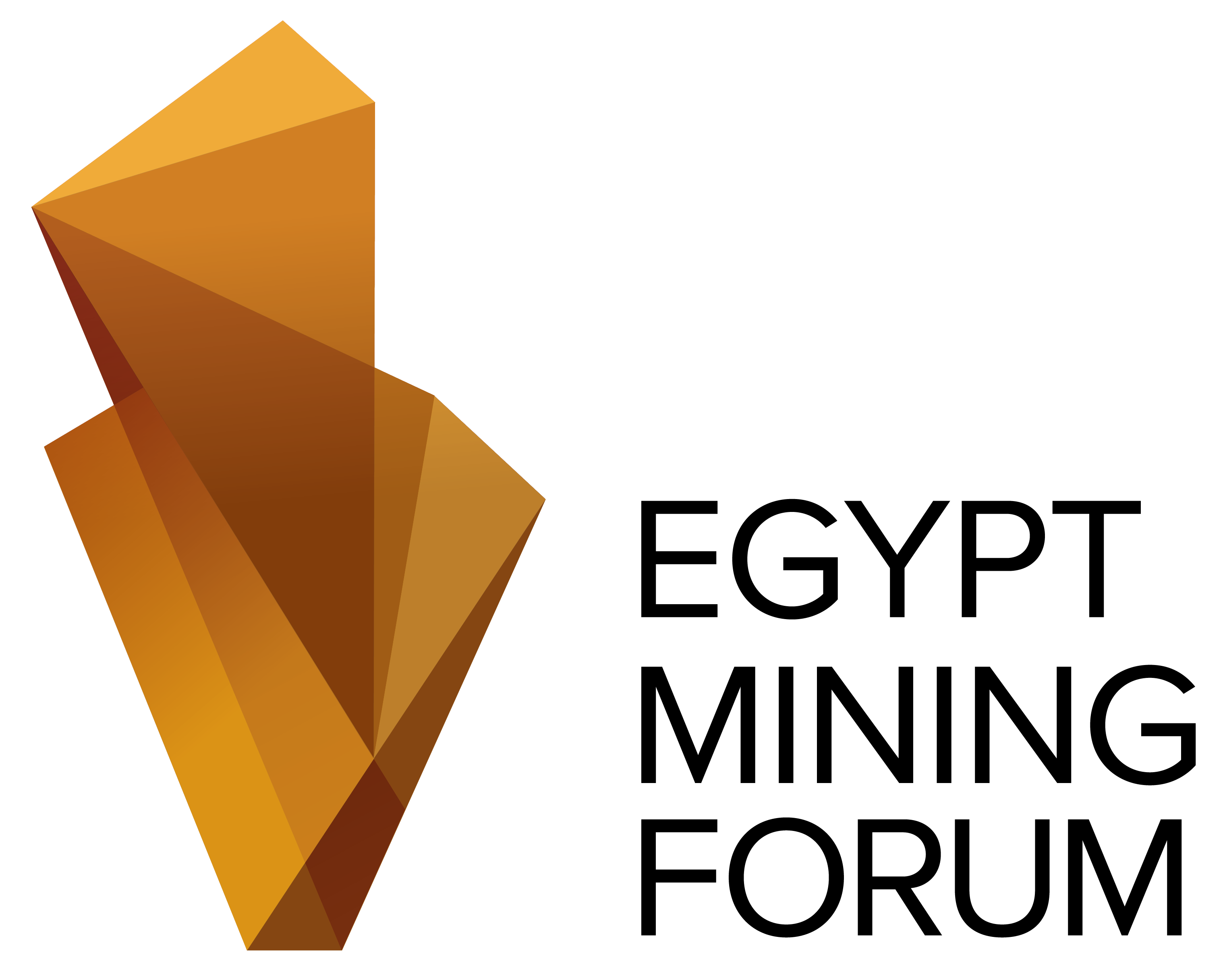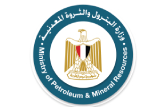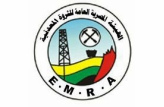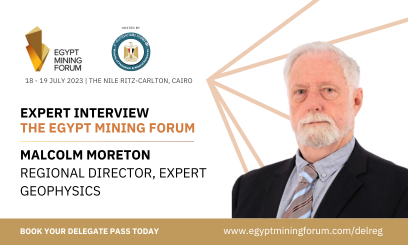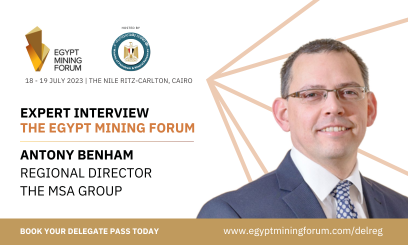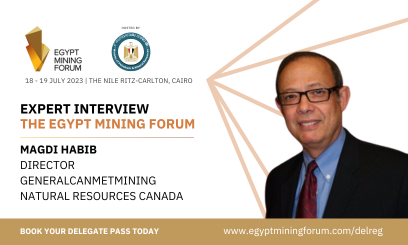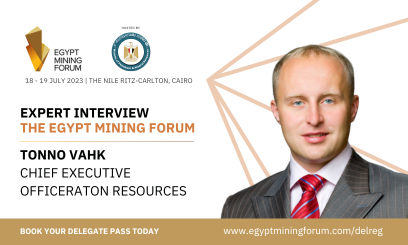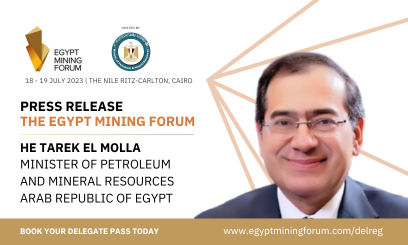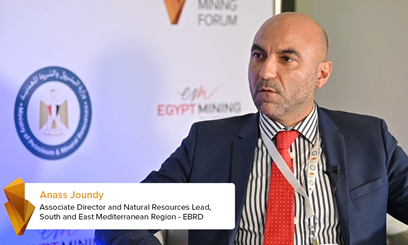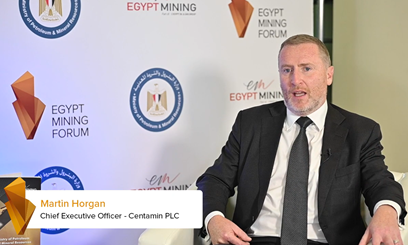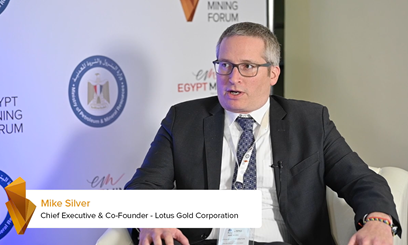EXPLORING UNTAPPED MINING OPPORTUNITIES AND NEW COMMERCIAL DISCOVERIES
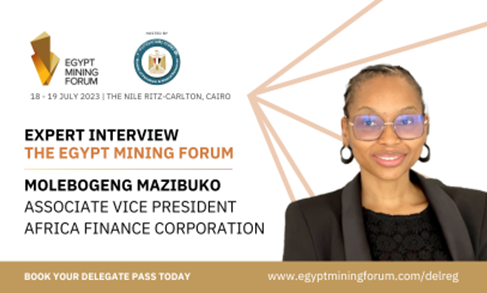
EMF Expert Interview with Molebogeng Mazibuko on Local Content and Procurement in African Mining
As the energy transition accelerates, there is increased focus on African natural resources. How can the exploitation of African minerals contribute significantly to local content and economic development across the continent?
Africa is endowed with 30% of the world’s mineral reserves. A carbon neutral future brings more opportunities from the demand side of the curve implying that we can bring projects on stream that the market would not usually permit.
With adequate knowledge and planning, Africa can advance exploitation of minerals in such a way that it has a broader impact on a multistakeholder basis. The acceleration of the mining assets development with the right partners; can lead to operationalising mines that are more all-stakeholder inclusive (prioritising and benefiting shareholders, governments, business communities, professional communities and more).
How does the regulatory landscape in various African countries influence local content and procurement policies in the mining sector?
The regulatory landscape in various African countries plays a crucial role in advocating for the use of local content through procurement policies, amongst other regulatory accords. Enhancing and making policies more favourable to local contents (products and services) can lead to economic empowerment of local communities that goes beyond direct employment/ benefits. Amongst key benefits can be the development of the small and medium businesses in andaround the mine. These opportunities allow form SMEs to prove themselves and have a fighting chance in the broader business environment. Such economic activity carries numerous multiplier effects that cascade down to improved health care, quality education and the wholistic economic opportunities for all.
If the regulatory landscape doesn’t advocate for use of local content and make it an absolutely “must”; the result is the ever-notorious ghost towns that have emanated all across Africa in ex-mining communities. We have seen in SA, in the west rand how some communities whose towns were once known for mining being left to deal with extreme poverty (because the only key benefit was job creation), mine dumps that lead to sicknesses (silicosis) with no one too account for. The fundamental error has been in how mines have contracted with the government and the different community classes. The need to contract for the people, and not just for profits is gradually improving the regulatory landscape.
Just to unpack a bit more a legal framework is made up of the following elements:
- Procurement Frameworks:Most African countries have a requirement that a mine must hire a certain percentage of locals; procure a certain percentage of goods and services from local companies; some even go a step ahead and categorise “local” based on distance from/to the mine (door-step community versus community, etc.). These policies aren’t meant to stifle the mines but to ensure that from an all-stakeholder-inclusive perspective; everyone benefits. Hence you get very flexible structures of agreement such as JV’s, subcontracting, etc. just to ensure there is a transfer of business skills, technical/ technology skills; so that the locals can have a presence in sectors that they are likely to not have a presence in. To date, local companies experience a high barrier to entry in critical services and the only way to address this is through more flexible and accommodative policies.
This is best driven by individual mines who carry the responsibility of policy execution as ethical corporate citizens. There are some exceptional examples all over Africa, though a lot must still be done. - Licensing and Permitting:In Tanzania, South Africa, Botswana, and other countries, the process to obtaining a license should largely depend on its benefit on the mining community at large. As part of the awarding process, the community affected by the mine must also give permission to the mining operation and the mine must have a social license that they can be held accountable for. This implies the community must fully understand what the primary (employment) and secondary benefits are, or else no deal.
- Contractual Agreements:The government enters into an agreement with the mining corporation that outlines each parties’ roles and responsibilities. In Tanzania, under the Framework agreement, the government stipulates minimums required which are conditional to the awarding of the license to mine. Mining companies are then held accountable to deliver of commitments made. These become tools used to monitoring execution of commitments around employment of locals, local content requirements and development initiatives.
- Capacity Building:Often one hears of lack skills in local communities; inability of local companies to render critical services, etc. Built into the key responsibilities on the mine side is the need to establish capacity building programs to ensure the local community is skilled enough to help advance the objectives of the mine, directly and indirectly.
- Monitoring and Enforcement:Effective regulatory oversight and enforcement mechanisms are crucial for ensuring compliance with local content and procurement policies. Governments may establish monitoring systems and penalties for non-compliance to encourage mining companies meet their obligations.
The only way these regulatory frameworks can be a success is when there is full buy in and commitment by all stakeholders (the mine, government and local communities).
Are there any best practices or successful examples of countries with favorable mining policies that have positively contributed towards local content and procurement?
Yes, there are some countries that have established favourable mining policies that have contributed towards the increase of local content, consequently expansion of other industries. This is not adopted by all mines at the same pace. The best way to measure is to take a view in isolation or at mine level.
Some good examples come out of Botswana diamond miners. The effects can be seen in the economic impact on the people in and around the mines; better schools, new clinics, increased numbers of higher education candidates form those communities, improved housing and more. Various ESD programs in South Africa have been exemplary from construction of mines throughout the life of mine. Good examples come from some PGM mines on the bushveld complex. The local authority has shareholding in the structure and is a key participant in procurement platforms allowing for the locals to have some form of advocacy or representation during the awarding of work.
Tanzania also has favourable policies; local content is prioritised from the process of awarding the mining right through various contracts between mines and government; and collaborations with the wider private sector. A lot of new mines are using local business-people to construct mines, and provide direct and ad-hoc services to the development of the mining sector.
The improvement of local content related frameworks is continuous in nature and Africa is making deliberate strides in replicating and improving existing successful and proven models (i.e. Chile- copper mines).
Success= clear regulation+ collaboration+ continuous monitoring and improvement.
How can mining companies collaborate with African communities, governments, and local businesses to ensure effective capacity building?
Mining companies can collaborate with African communities, governments, and local businesses in several ways to ensure effective capacity building. Mining companies can employ many collaboration strategies, tailored to the nuances of the stakeholder groups:
-
Collaboration with government: Mining company must be able to advance the mandate of the national and local government which is anchored on empowering its people at different levels; eradicating poverty through the creation of decent jobs and more. Central to the realisation of these objectives, a mining company must clearly stipulate its role in how it will employ people from local communities, procure their services and products across the mines activities and set up programs to capacitate the locals to be able to deliver on services necessary to advance the mine. This can include CSI initiatives / social investment initiatives that invest in areas that are usually invested in by government such as education, health-care and infrastructure within mining communities. In most mining towns mines invest schools and clinics to provide convenience to employees, service providers and other people. The schools serve as a pool for future employees, entrepreneurs not just for the mines but for society at large.
- Collaboration with local business can be via enterprise supplier development programs (ESDs) aimed at capacity building for local enterprises. Some ESD programs include training, and continuous support for the enterprise through finance and business coaching. This has been seen through programs such as Phakamani in South Africa, amongst others and business chambers in other African countries. There is obviously a lot to do still but we have started.
There must be continuous consultation with various stakeholders to make sure that the mine understands what is expected by the people and vice-versa. When there is a sense that decisions are taken together, everyone takes responsibility instead of expecting that only the mine must account. This can yield a smoot relationship between parties.
You are joining us in Cairo at the Egypt Mining Forum later this month as a panelist. Can you tell us, what are you most looking forward to discussing during the Africa focus panel on Local Content and Procurement in African Mining?
“Execution” and “Collaboration”: How we can as corporates graduate our discussions into action and optimally collaborate to achieve more (i.e. webinars on lessons learnt, walking the journey with stakeholders, etc.).
Register to attend: www.egyptminingforum.com/delreg
sales@egyptminingforum.com | +971 (0) 4 248 3210
www.egyptminingforum.com
